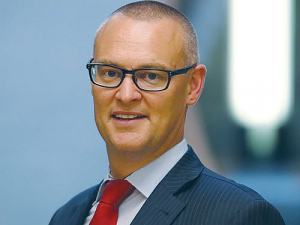Following the rejection of a school for rural medicine, three universities have another proposal to attract and retain health professionals in rural areas.
Health Minister David Clark this month rejected the idea of a school for rural medicine. He said it would cost up to $250 million to set up and run. But the Ministry of Health plans a raft of measures to improve the supply of doctors, nurses and midwives in rural areas.
“By itself, just training more undergraduate doctors is not the answer,” Clark said. “We need a more comprehensive approach to attract, support and sustain the health professionals that care for rural people,”
Dr Garry Nixon, associate dean rural at the University of Otago, says a joint proposal between the universities of Auckland and Otago and the Auckland University of Technology (AUT) fits with the Government’s thinking.
He says a national inter-professional school of rural health will bring together a community of rural health academics, dispersed across rural New Zealand and brought together on a “virtual campus”. Rural healthcare professionals would combine academic roles with active rural clinical practice.
The school activities would be based around nodes located in rural towns and integrated with local health services.
Nixon told Rural News the Government has said it didn’t think a third medical school is what NZ needs at the moment, and although more doctors overall are not needed there is a “mal-distribution” of the health workforce.
Nixon sees real shortages in rural NZ.
Australia has 18 rural clinical schools and most Australian medical schools have a rural clinical school attached to them. It allows more students to do more of their training in rural areas.
“It is also a way of supporting rural health professionals — doctors and others — to undertake teaching and research in the same way they would have those opportunities if they were living in the city,” he says. “It is a very successful model overseas.”
Nixon says the health minister’s statements are aligned and the Ministry of Health is keen to look at successful Australian models.
“Our proposal is very much based on successful Australian models. We send reasonable numbers of students out into rural areas to get experience, but we don’t have the university appointments in rural areas like they would have in Australia.
“It provides the teaching expertise, research and leadership. We have been really held up in New Zealand by not having that.”
Nixon says Otago and Auckland are giving rural students opportunities to go through medical school and return to rural areas. And there are opportunities for medical students and other health professional students to train in rural areas.
“But where we are falling down is in not putting those university posts — the university infrastructure — into rural areas. Compared to Australia we are really falling behind.”


















